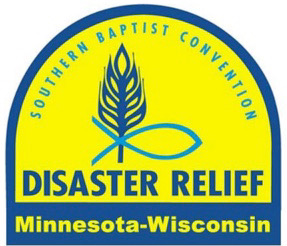Opportunities
There are many ways to join us in our mission to offer help, healing, and hope to those in crisis. Read below to learn about some of our disaster relief teams.
Disaster Relief
Emergency relief for the first 24-48 hours and can last up to six weeks or longer.
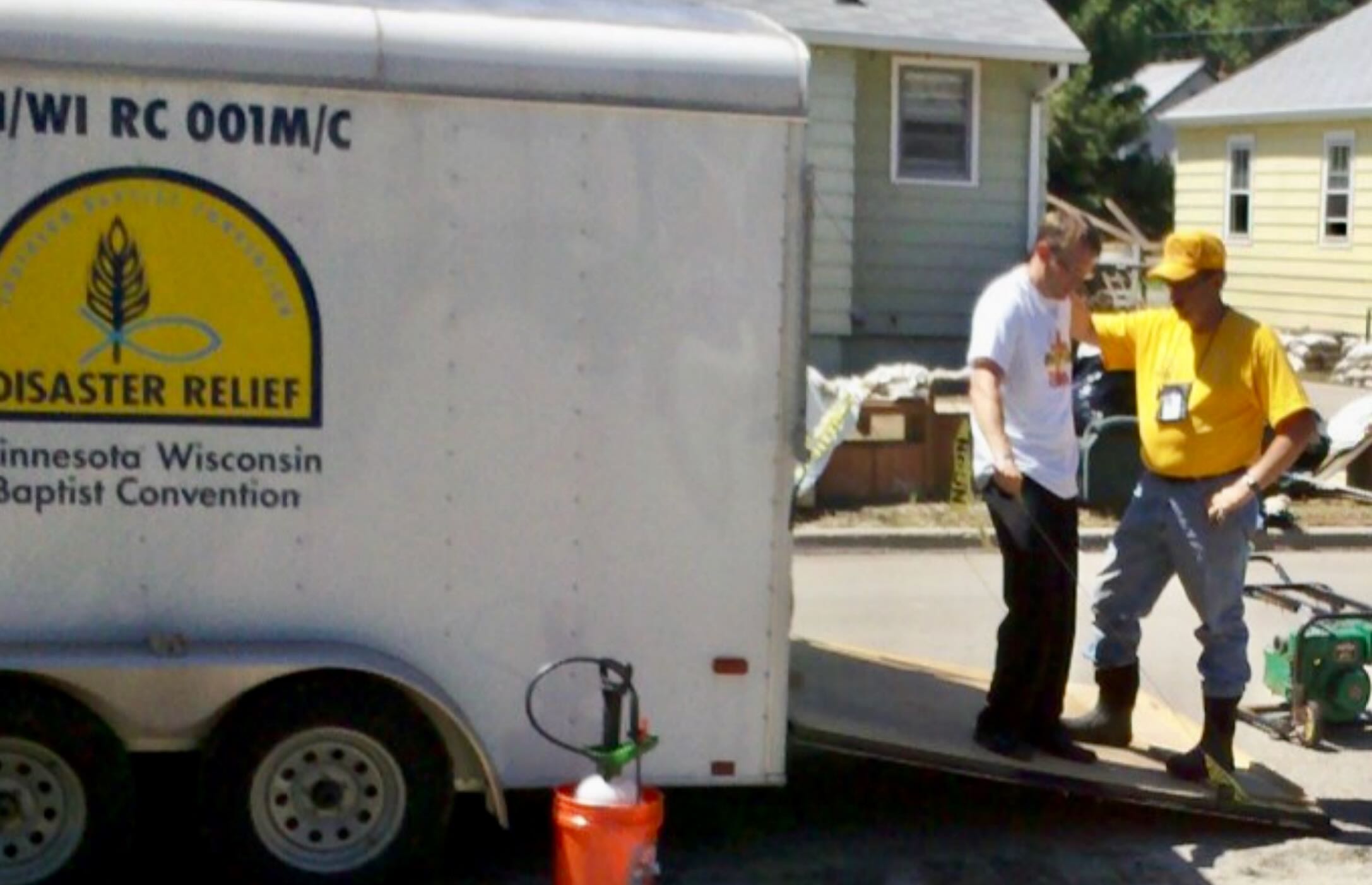
Chaplaincy Team
Chaplains in disasters provide caring ministry through their presence and prayerful intercession even when fear may grip their own hearts. Chaplains anticipate perceived needs, even before the victims do. Chaplains have one tool which is irreplaceable, and that is a listening heart. The work begins with compassion. Compassion compels us to go where it hurts, to enter into places of pain, to share in brokenness, fear, confusion, and anguish. Compassion challenges us to cry with those in pain. God is always present in suffering. The strength of a care-giving relationship is in the fact that victims are not alone. During a crisis, those affected need to tell their stories. They need to have validation of their feelings and sense of loss. Practicing the presence of God includes feeding the hungry, giving a drink to the thirsty, showing hospitality to strangers, and clothing the naked. Compassion means being present to help meet physical, emotional, and spiritual needs.
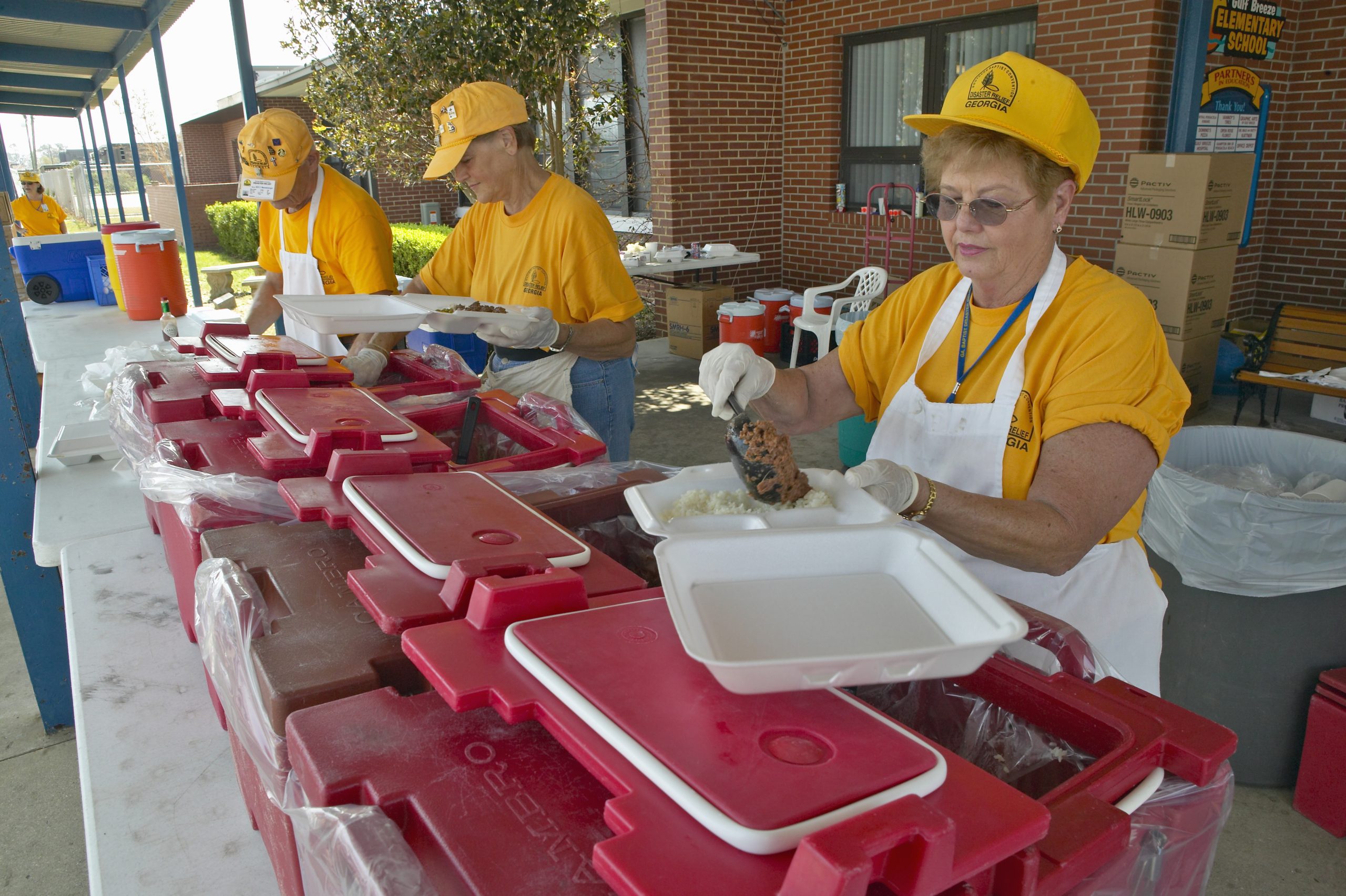
Feeding Team
When homes are destroyed or damaged in a disaster situation, a hot meal can mean a lot and be the stepping stone to recovery. Mobile kitchens-feeding teams can move in and prepare meals, to be served by the American Red Cross, The Salvation Army, or our own feeding lines under the leadership of trained team leaders. Included in our training is safe food handling procedures, meeting the health department codes. All volunteers are required to be trained in these procedures as well as have hands-on training on the specialized commercial equipment. This equipment includes convection ovens, a forty gallon tilt skillet, and other cooking stoves. These field kitchen units can be called from other states with capacity to serve 5,000, 10,000 or up to 50,000 meals daily in the event of a major, extended emergency response like that faced during Hurricane Katrina or Hurricane Sandy. Our goal is to not just serve thousands of meals, but to serve hot, nutritious, tasty meals to victims and workers alike in the name of Jesus.
Recover
A few days to three months
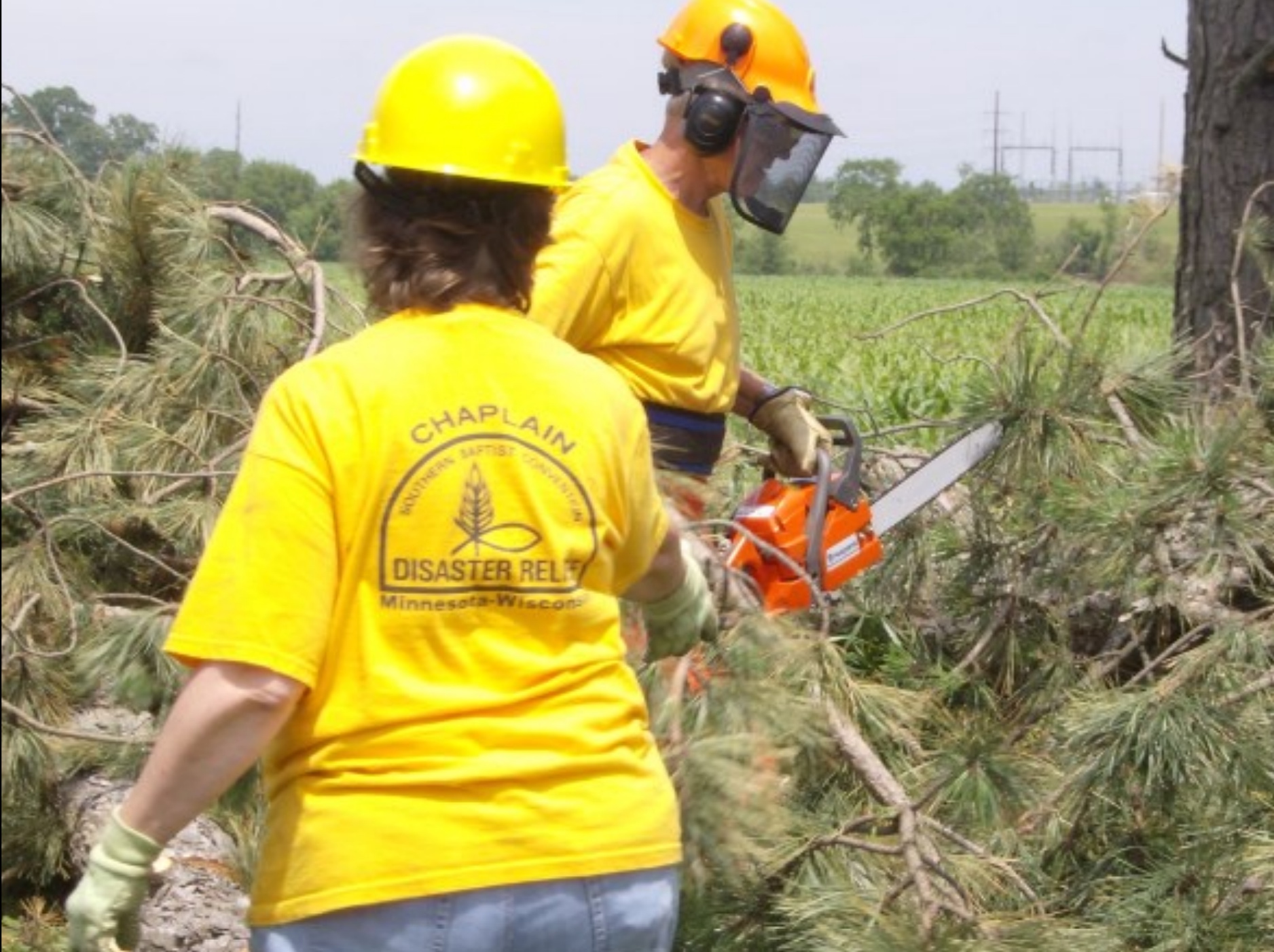
Chainsaw Team
The purpose of the Chainsaw team is to share the love of Jesus and the Word of God with those in need and each other while using our chainsaws and equipment safely to remove fallen trees on homes after a disaster. When first arriving, jobs are assessed and given a priority. High priority jobs include those that are an obstruction to daily life such as tree in house, on the roof, blocked driveway, and for those people with special needs. Chainsaw team volunteers wanting to do more than just cut up trees for disaster victims came up with the idea of a Bible in a Bag. They want to share with each victim the hope that we have in Jesus even during a disaster. One way is when they knock on doors to offer their free services of cutting up the fallen trees, they can hand the homeowner a bag with a Bible, tracts “Hope in Crisis” and/or “Why We Are Here,” and a witnessing letter of greeting from MN-WI Baptists. If the homeowner is not at home, this bright yellow bag with our Disaster Relief logo is designed so it can be left hanging on the doorknob.
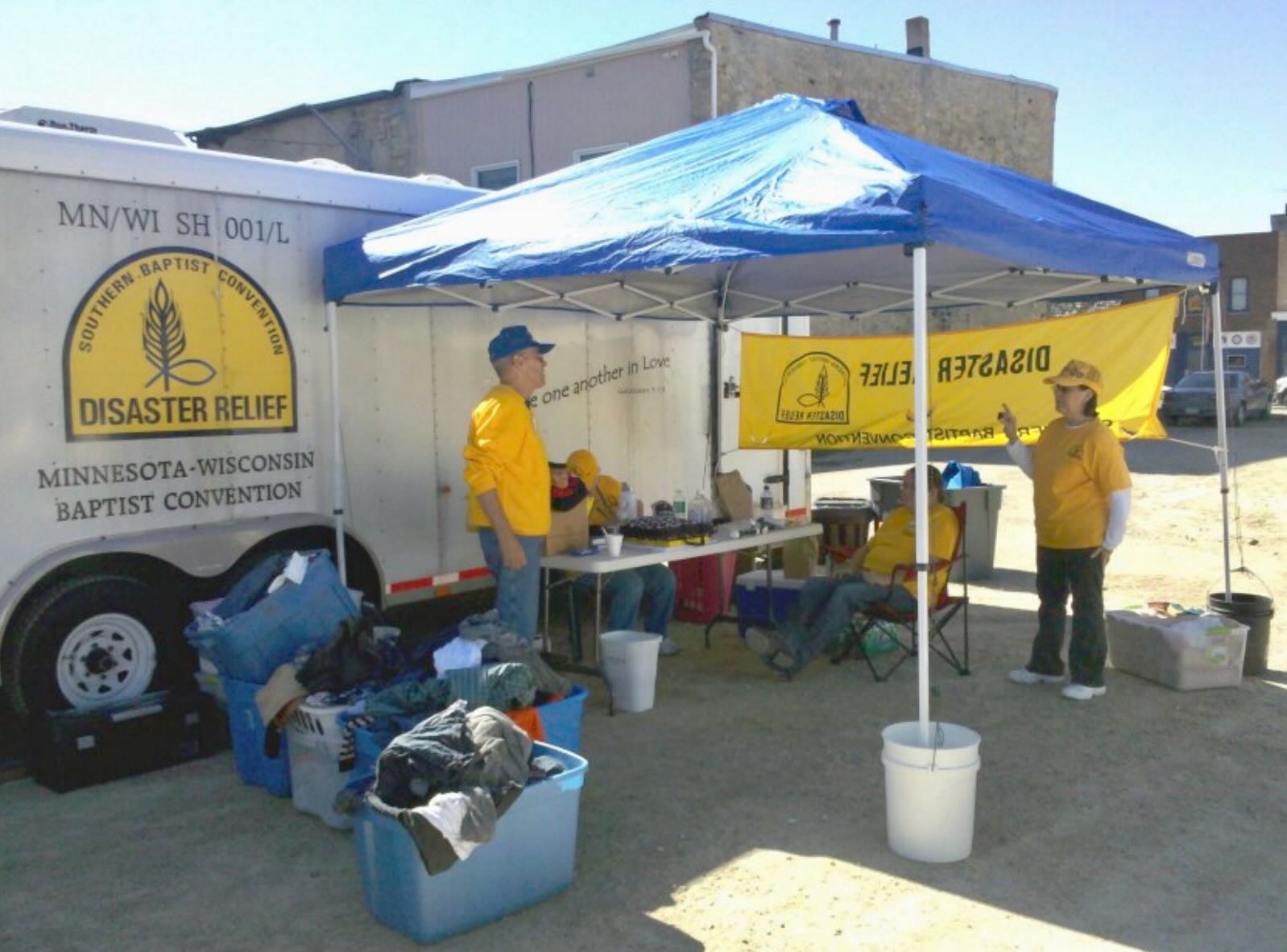
Shower/Laundry Team
The needs of volunteers remain the same—a place to sleep, food to eat, and a means to clean up. By their nature, chainsaw and mud-out are very difficult and dirty types of work so there is an urgent need for portable showers and laundry facilities – for volunteers as well as sometimes families affected by disaster. Shower stalls and washer/dryer sets on this unit provide a way to allow volunteers to start the day out clean and ready for work.
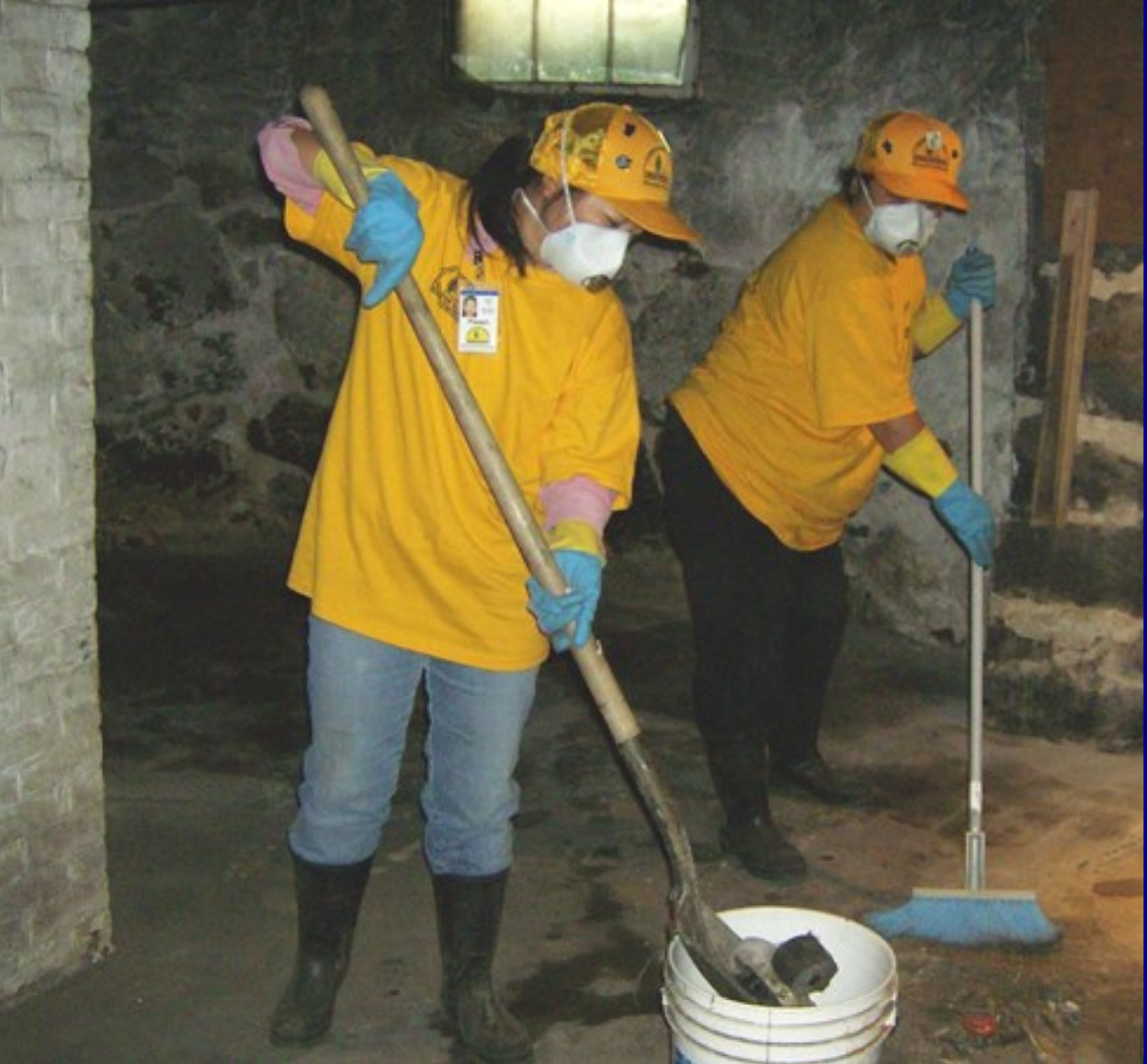
Mudout Team
The Mud out team primarily responds after a flood or rising water to drain the water, and clean out and remove debris from the interior of the house and/or basement. After the water has been drained, the volunteers cut out the damaged sheetrock above the water line and haul it and the insulation all out to the street for the homeowner. The area is then sanitized making it safe to live in. A health hazard may be present if the interior walls have had water and mud between them. Many types of mold can grow from floodwaters and mud can cause serious lung problems, so the clean up must be a very organized process. It has become the practice of these teams to ask the homeowners if they can pray with them at the completion of the job. Each team member signs the Bible and leaves it with them. Our motivation is to show the love of Christ, but to also tell them, as Scripture says we
Rebuild
Four months to two years or longer.
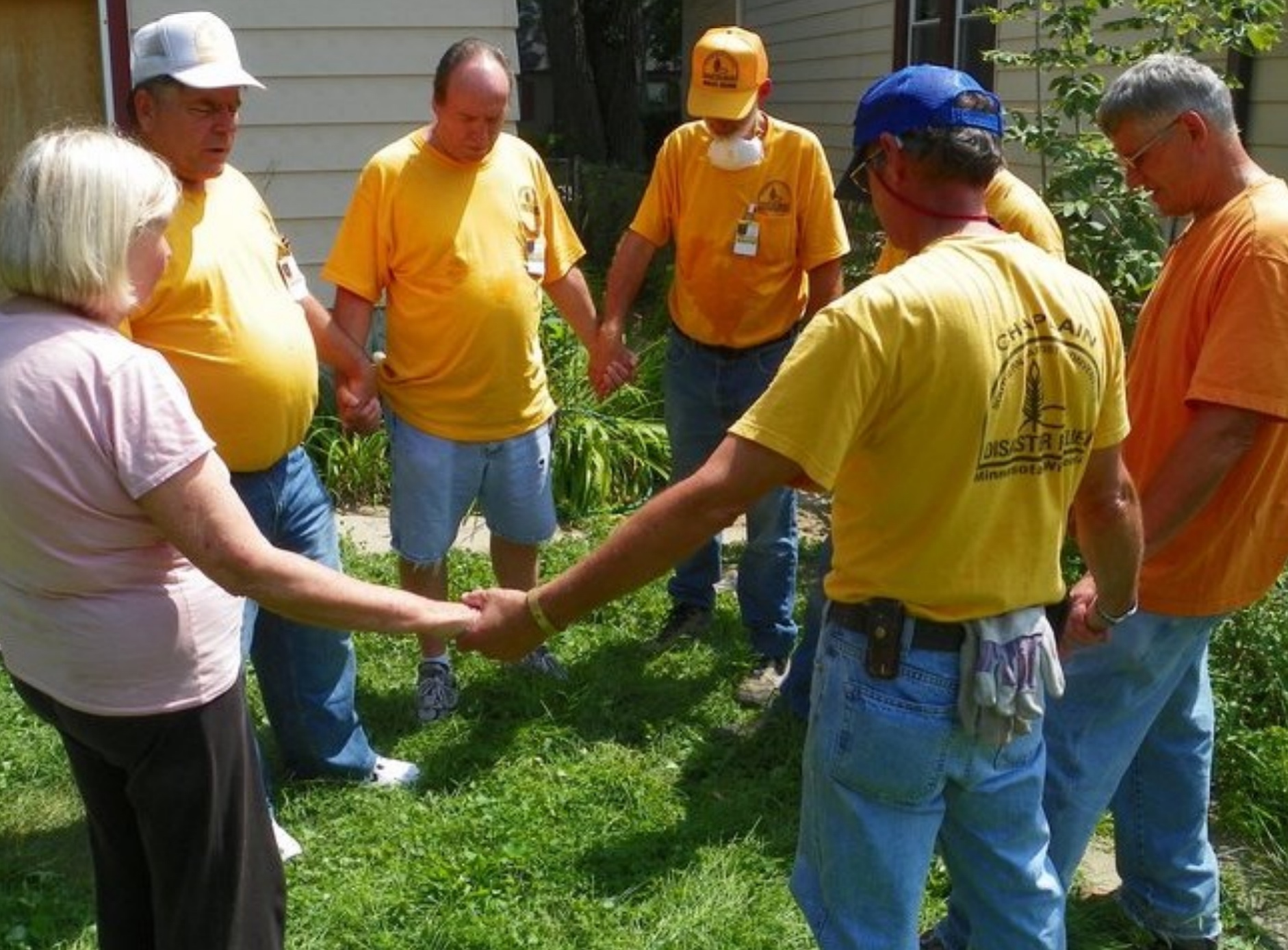
Prayer Support Team
This team is designed for those who want to be involved in Disaster Relief, but are not able to actually travel to the disaster site. When faced with the aftermath of the devastation people do not care about credentials, diplomas, etc. They look for kindness and understanding. They need a shoulder on which to cry, a word of encouragement, a listening ear, and a heart of compassion. A compassion born out of our love for Jesus Christ. It is love, compassion, and understanding the victim longs to hear, more importantly, see. Our main purpose is to bring disaster needs, names of volunteers, specific requests to the Father to undergird the work of those on the scene with prayer. Prayer for protection. Prayer for God to reveal Himself and His love and care through our DR volunteers. Prayer for resources to find their way to the needs. Prayer for life, health, healing, encouragement, hope, etc.
